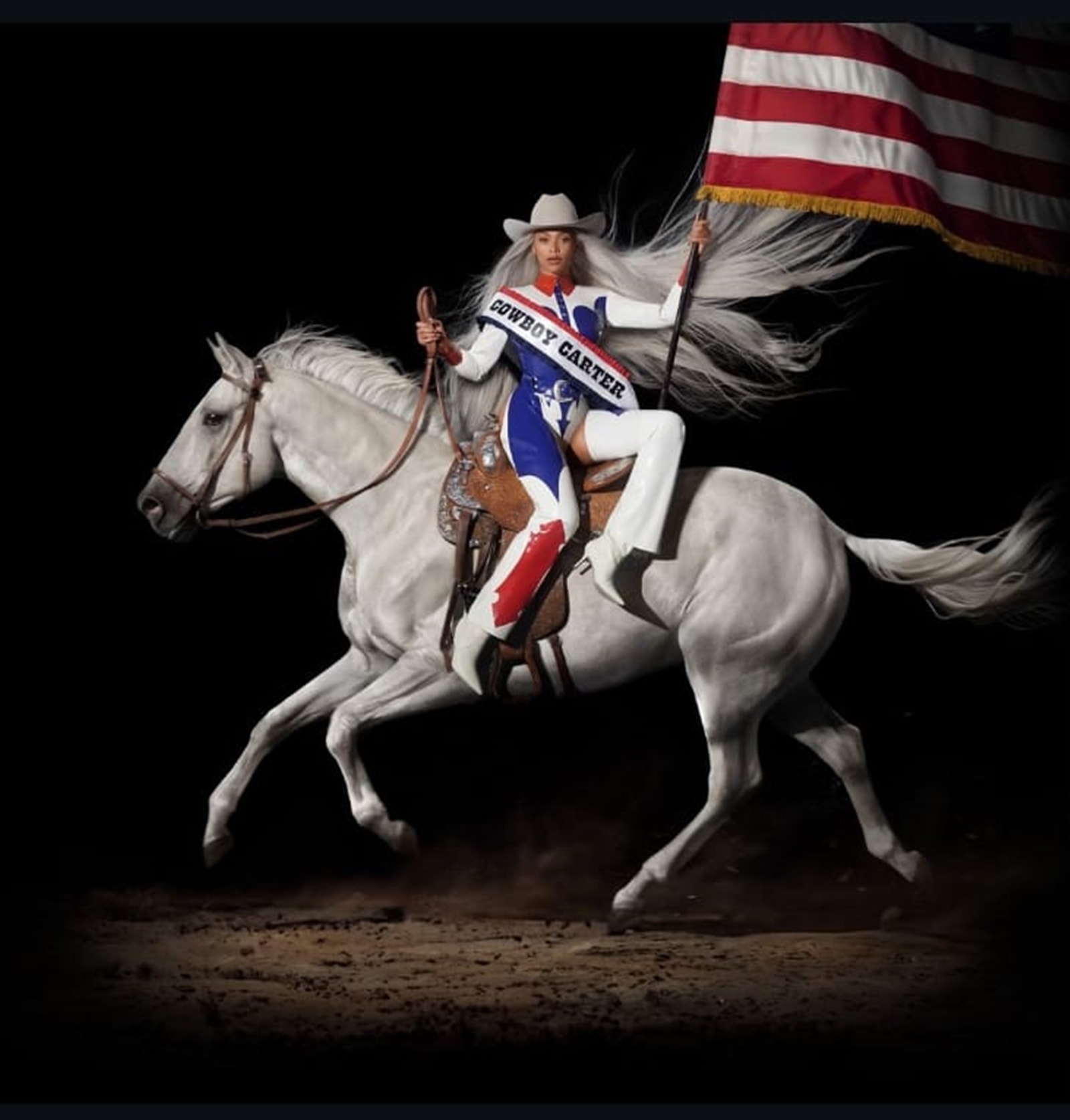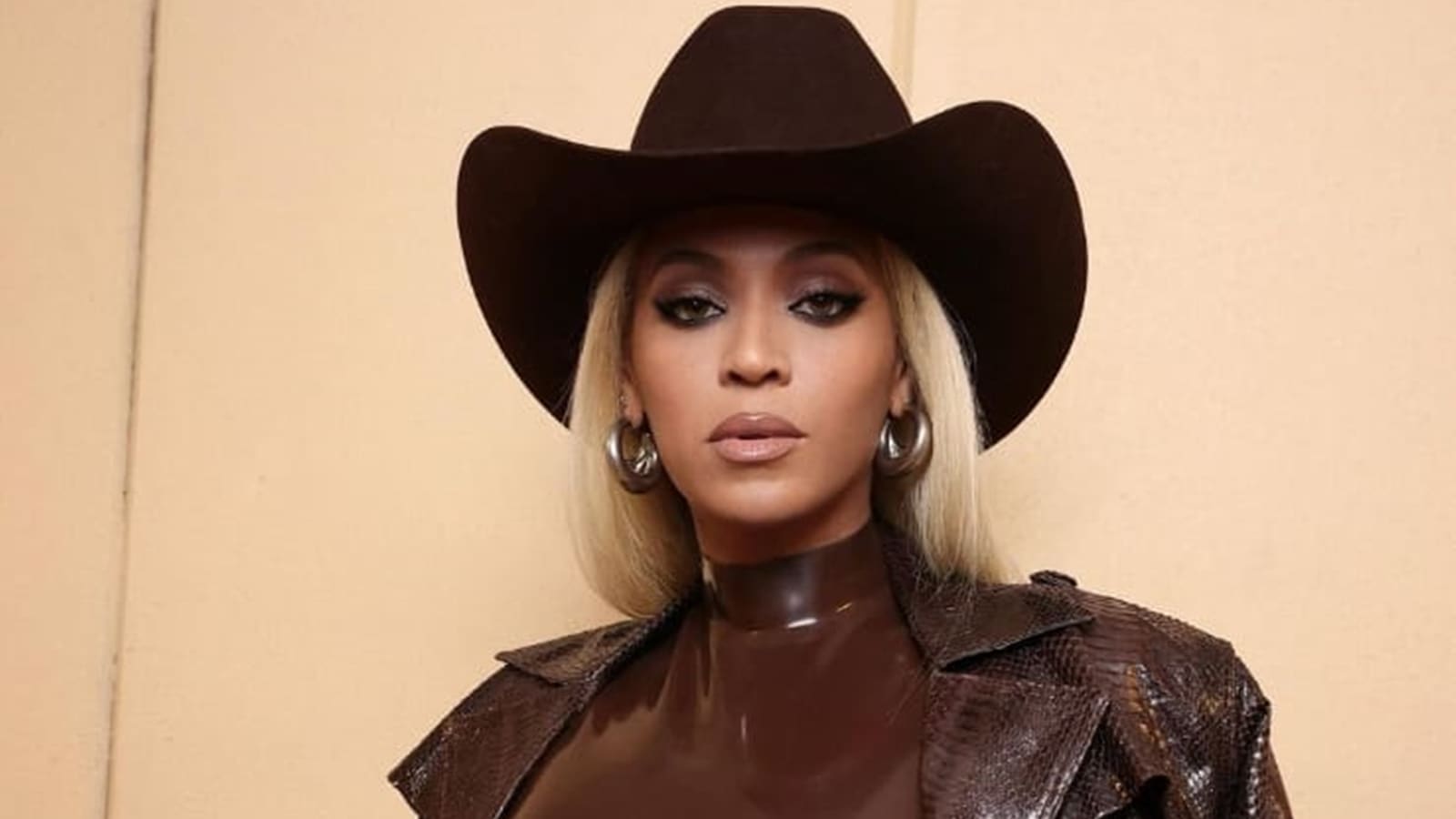“Get that Black b***h off the stage!” a woman screamed at a sparkling Beyonce Knowles-Carter — the multiple Grammy-winning pop culture icon — while she performed an exceptionally twangy version of her song ‘Daddy lessons’ with The Dixie Chicks at the 50th Country Music Awards in 2016. Veteran country artiste Alan Jackson walked out mid-performance and social media backlash followed, with racial vitriol in tow. Sounds strange for 2016? Especially for an artiste who exerts a lofty level of political influence in the music industry, the kind that not many come close to.
Cut to 2024.
When Beyonce released ‘Texas hold ‘em’, a single from act II: Cowboy Carter — her new Country-inspired cross-genre album, the spirited banjo riff and that bluegrass tinge in place, there were more questions about whether a pop artiste could make a genuine crossover from pop to country — a genre largely considered a territory of White musicians, a space that is politically conservative and provincial. But Beyonce, a Texan, was embracing and reclaiming her country roots and she didn’t need to explain. While the debate went on, Beyonce made history by becoming the first Black woman to top Billboard’s Hot country Songs Chart as well as the all-genre Hot 100 chart with the song.
The 27-track album that followed — a response to “feeling unwelcome” once (a reference to the 2016 incident), as she stated, was nominated for a staggering 11 Grammys last week, including in the “Country” categories, taking her total to a whopping 99 nominations. She’s taken 32 of those hallowed gramophones home.

“Because of that experience, I did a deeper dive into the history of country music and studied our rich musical archive…The criticisms I faced when I first entered this genre forced me to propel past the limitations that were put on me. act ii is a result of challenging myself, and taking my time to bend and blend genres together to create this body of work,” she wrote on Instagram.
Tell Beyonce that a space does not belong to her and she will forge a unique one which will be state-of-the-art, sharper and always inclusive. Here was an artiste, affected but not daunted, turning to study and research to find the deeper story. An artiste who, like a lawyer’s investigator, gathered evidence to refute the other party’s claim to exclusive custody of a genre of music that has deep Black roots. That the banjo — the mainstay of country music — was brought to the US by African slaves and that there was always a cross-pollination of the music with the blues.
For someone who grew up in Texas, with country music all around her, she shouldn’t have had to prove her worth. The only reason she had to was because the country music industry is controlled by certain gatekeepers. “Used to say I spoke too country / And the rejection came, said I wasn’t country ’nough” she croons in ‘Ameriican requiem’.
Let’s be clear. When Beyonce enters country, she does not mean the genre only. On the album cover, she sits on a white horse galloping in a rodeo ground while she sits in long-heeled boots and a cowboy hat, the star-spangled banner held in one hand. It’s not only about staking claim to a genre, it is not just about reclaiming Black heritage; it’s also about blurring boundaries (she’s touched upon RnB and hip hop among others) and shows us how a genre can evolve.
Through the album, she acknowledges America’s cruel racial past, gives what’s due to the Black artistes who’ve always been country and to Black people who’ve always lived in the country.
The Recording Academy has given her its nod and Yale University will now acknowledge her contribution to Black history and politics by teaching a course titled “Beyonce Makes History: Black Radical Tradition History, Culture, Theory and Politics through Music”, with its first edition commencing this spring. But the Country Music Association snubbed her album last month with zero nominations. Before that some country radio channels even refused to play the album, saying it isn’t country. Interestingly, their most nominated artiste this year is Morgan Wallen, who was disqualified in 2021 from the awards for uttering a racial slur.
But how has Beyonce been a force for almost 25 years? Since her days in Destiny’s Child, one of the greatest trios of all time, Beyonce seemed to be meant for bigger things. From embracing her womanhood in her debut, ‘Dangerously in love’, which launched her into stardom, to her later albums like Lemonade (2016), where she looked within and highlighted her husband Jay Z’s infidelity, Beyonce (2013) that celebrated her marriage and sexuality and Black is King (2019) with African traditions and sounds in place, her evolution is noteworthy.
most read
She writes a song like ‘Freedom’, one of her more political ones, and allows it to be used by Kamala Harris for her campaign (and endorses her), she takes away from Donald Trump the right to use her music for his campaign and threatens him with cease-and-desists, talks about George Floyd’s death and asks people to stand up for years of wrongdoings, helps bring an appreciation of Black culture to the forefront and speaks up on LGBTQ rights, women’s empowerment, sexism and feminism, besides using author Chimamanda Adichie’s speech on feminism as a backdrop to her song ‘Flawless’. And then, of course, is the fact that only Queen Bey can deliver an album as shrewd as Cowboy Carter.
Through her bold music that tackles complex matters, Beyonce is leaving no stone unturned to highlight what’s going on in her country as well as the music industry. When she performed at Coachella – the famed space where festival-goers flock from all over the world, in 2018, on its 20th edition, the festival had not seen a Black headliner for the last 19 years. And it’s here that she turned her concerts (two over two weekends) into a cultural revolution of sorts. She schooled those who attended, in Black identity and celebrated Black expression.
Her enduring appeal lies in her brilliance as an artiste and how she uses that to be a disruptor who strives for social justice and equality. That’s more than many politicians can manage in their lifetimes. She is willing to go against the tide and break the ceiling regularly. No wonder then, the BeyHive is only growing. No wonder then, that Beyonce remains the crowning glory of popular culture – the queen of many small and big things.
suanshu.khurana@expressindia.com


